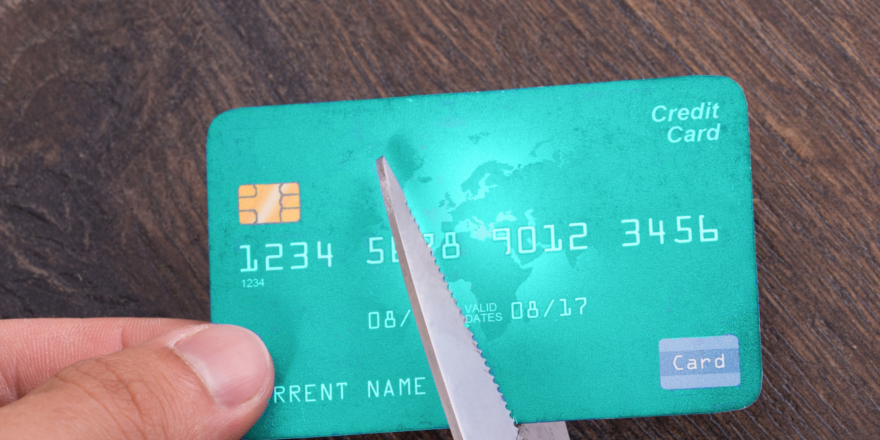
Personal loans have been around far longer than credit cards, but the convenience of credit cards has overshadowed personal loans until now. Online lenders have made personal loans a convenient, simple, and popular way to bridge financial gaps – but for many people personal loans feel like a relatively new option and we get a lot of questions about how personal loans really work. As a company at the forefront of this new way to borrow, we love that you’re asking questions. So, here’s everything you always wanted to know about personal loans.
Why do people get personal loans?
Personal loans can be used for almost anything. The two most common use cases are paying down existing debt at a lower rate, also known as refinancing or credit card consolidation, and making a purchase when you don’t have the money currently available. Examples include wedding loans or home improvement loans. Many people use credit cards for these types of purchases, but fixed-rate loans will often help you save money.
Who gets personal loans?
Almost anyone. But different types of borrowers have different options available to them. Rates and loans are largely determined by a borrower’s credit history and credit score, limited history and low credit will reduce options and raise rates.
How do lenders decide whom to lend to?
Each lender has established a formula to determine whom to lend to and at what rate. This process is known as underwriting. Typically lenders will look at many factors including your credit history, your current debt-to-income ratio, and your expenses in assessing your creditworthiness.
How are interest rates determined?
Interest rates are proportionate to risk. Based on their own individual underwriting, each lender assesses each borrower’s risk of defaulting. The lower the risk, the lower the rate the lender will offer. Lenders also look to make a profit on the personal loans they make, so the interest rate includes both the cost of the risk and the cost of servicing the personal loan.
Why do credit scores matter so much?
Credit scores are a quick and standardized way to understand a person’s creditworthiness. While each credit reporting agency (Equifax, Experian and TransUnion) has its own formula, there are 5 factors that make up your score: credit history, payment history, types of credit, new accounts, and amount owed. All of these factors matter to lenders when they are trying to evaluate whether to lend to you and how much.
We believe that credit scores only tell part of the story, which is why we include education and employment information in our underwriting.
Does it cost anything to apply for a personal loan?
Once the personal loan has been finalized, most lenders will take out an origination fee before transferring the money. This fee is only charged once and is essentially to help the lender pay for the cost of issuing the loan. This fee is generally removed from the funds you receive, so if you take out a $10,000 loan with a 4% origination fee, you would receive $9,600 from the lender.
Most personal loans do not have loan application fees, so there is usually no cost to applying for the loan if you do not get it. If you are unsure, ask before applying as most application fees are nonrefundable.
What is the difference between an interest rate and an APR?
The interest rate of a personal loan is the amount of money you are charged for borrowing money. Interest is applied in a regular balance to the outstanding principal on your loan. This does not include the origination fee, or any other fees charged by your lender. The APR is a rate intended to include all fees, so you can more easily compare loan offers from different lenders who may have different fees for their loans.
Why does increasing my monthly payments change the total amount I will pay?
One thing many borrowers don’t realize is that they can often pay their loans off early. While some lenders charge a fee for early repayments, most do not. When you make payments above your required monthly payment amount, you reduce your outstanding principal on your personal loan. This will reduce the interest you pay – and the amount of your next required payment – allowing you to pay your personal loan off faster and with less interest cost to you.
We created this loan calculator to help you evaluate different loan offers and the benefits of increasing your monthly payments.
Why does your loan calculator say my APR goes up if I pay off my personal loan early?
One of the interesting elements of APR is that it is a calculation based on your actual payment schedule, and not really a fixed condition of the loan. Most personal loans have a fixed interest rate and origination fee. When you pay off your loan faster, that origination fee is being paid in a smaller number of payments, increasing the portion of total payments that go toward interest and fees, and thus the APR.
What is a floating rate loan?
While most personal loans (and all loans from Upstart) have a fixed interest rate, some personal loans allow the rate to change over time – usually after an initial period such as 1 year. Typically the rate will increase based on some external measure like the prime rate. It’s important to know if your rate is fixed or floating, because a floating rate will likely mean that your required monthly payment will increase in the future. Because this rate usually goes up, the lower initial rate is sometimes called a “teaser” rate.
How soon can I get my money after my personal loan is approved?
It depends on when and where you apply for your personal loan. It can be as little as 24 hours (which is the case for many of our borrowers) or as long as a month. Having all of the necessary documents available before applying should speed up the process.
What documents do I need to apply for a personal loan?
Each lender will have a slightly different application process. Almost all lenders will ask for your name, address, and social security number, which is used to run a credit check. Depending on the type of loan and lender, you may need to show pay stubs, tax returns, transcripts, or SAT scores.
I already have a personal loan, can I get another?
That depends on several factors, but most likely you can. Lenders will re-assess your creditworthiness, so your payment history on your current personal loan, any changes to your credit report, and any increase or decrease in your income and expenses would impact your ability to get another loan. Also, your current personal loan will be taken into account when lenders assess your debt to income ratio to determine if too much of your income is going towards paying debt. If you have been making on-time payments on your loan, it’s likely your credit score has improved and your rate may be lower on a new loan.
What are prime borrowers?
While there is no official definition, prime borrowers are typically defined as people with credit scores above 720, who have no delinquencies on their credit report and more than 6 years of credit history.
Can people without established credit get personal loans?
Yes, Upstart was the first online lender to offer loans to borrowers with no credit score. Traditional lenders do not lend to people without credit because they don’t know how to evaluate their creditworthiness.
If I have less than perfect credit, can I get a loan?
Yes, but the lower your credit score the more expensive the loan will be. Generally speaking, if you have a credit score lower than 620, the only loans available are going to be through subprime and payday lenders with rates ranging from 29-400%.
Can I appeal an adverse action notice?
If you believe your loan was denied because of incorrect information (e.g. an error on your credit report or additional income), then you can submit corrected documentation to prove that you qualify. But, if you do not qualify based on the lender’s underwriting criteria, you can’t appeal the lender’s decision.
What is the difference between a secured and unsecured loan?
Secured loans have something of value tied to them for the lender to use as collateral. In the event that you do not repay a secured loan, that item is repossessed by the lender. This gives the lender a way to get their money back in a worst-case scenario. Common secured loans are mortgages and auto loans.
Unsecured loans do not have any property tied to them, so they often have slightly higher rates than secured loans because the lender has more risk.
What happens if I can’t repay?
Before you miss a payment, reach out to your lender and let them know what’s going on. Lenders are more likely to work with you before you have months of missed payments and mounting fees. One you miss a repayment, lenders will reach out to you to figure out how to get your personal loan back on track. If you remain behind on your payments, lenders will report this to the credit agencies, which will have a negative impact on your credit score.
Curious about how it all works? Check your rate






 Won't affect your credit score¹
Won't affect your credit score¹